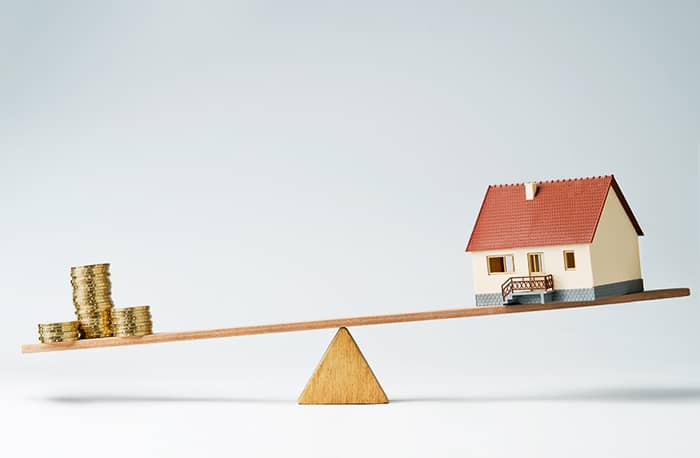You’ve daydreamed about it, the celebration you’ll throw when you finally pay off your mortgage, complete with the joyful dance you’ll definitely do. Oh, the elation of having no outstanding debt and being completely in charge of your property. But hang on there: while paying off the principal on your house loan is surely an accomplishment, you don’t want to speed through the process any more than is absolutely necessary.
We are aware that continuing to make mortgage payments may seem to be counterproductive, particularly if you have a significant amount of debt hanging over your head; but, getting rid of a mortgage payment isn’t always the most financially astute decision.
You are undoubtedly wondering to yourself, “Um, what about all the interest I’ll save?! ” Continue to work with us here. To begin, interest rates on mortgages are at all-time lows, which means that removing a mortgage won’t actually result in all that significant cost savings. And it’s possible that the money may be put to greater use elsewhere. Here are several scenarios in which you may want to consider delaying your monthly payment, as well as the reasons why you would want to do so.
You Are Eligible to Get a Tax Deduction For Your Interest
If you itemize your deductions on your taxes, you may deduct the interest paid on your mortgage and any home equity loans you have if you are a homeowner. This can add up to a sizable reduction in your total tax bill. In a nutshell, homeowners who have a mortgage that was active before the 15th of December, 2017, are eligible to deduct the interest they pay on loans of up to one million dollars. On the other hand, homeowners may only deduct the interest on the first $750,000 of any purchase debt that was acquired after the 15th of December in 2017.
In either scenario, maintaining a longer-term commitment to your mortgage makes it possible for you to maintain eligibility for the deduction over the duration of your loan.
You Have the Option of Getting a Loan Against Your Home’s Equity
As long as you still owe money on your mortgage, you are eligible to apply for a home equity line of credit, often known as a HELOC. According to the Internal Revenue Service (IRS), if you use the money from the loan to “purchase, develop, or enhance a property,” then the interest that you pay on the loan is tax deductible. This is an added advantage. It is important to keep in mind that you may deduct the interest on your HELOC and mortgage combined up to a total of $750,000. If you are planning to redo your bathroom in the near future, you should probably keep that mortgage.
You Have the Potential to Earn a Greater Return Elsewhere
Take a moment to gather your thoughts and ask yourself, “Could my money be doing more for me?” If you put all of your hard-earned money toward paying off your mortgage, you won’t have any money left over to invest in other areas, which, of course, reduces the possibility of making a profit from your investments.
Homeowners who are contemplating paying off their mortgages should, according to Jim Ludwick, founder of Main Street Financial Planning, consider purchasing a rental property instead of paying off their mortgage. Use our mortgage calculator to do the math, and don’t forget to submit an application for pre-approval if you end up deciding to pursue that path.
You Are Responsible for Additional Debts That Have a High-Interest Rate
In the long term, utilizing additional income to pay off debts such as mortgages can save you money on interest payments. This is because mortgages often have lower interest rates than other types of debt, such as credit card debt.
You Are Concerned About the Security of Your Savings for Unexpected Expenses and Your Retirement
You should rethink your strategy if you want to pay off the principal of your loan by withdrawing money from your savings account or retirement fund. If you choose to pay off your mortgage using one of these alternatives, you can have the impression that your financial situation is more stable than it really is. If you do not have a cash reserve set up for emergencies, unanticipated charges, such as medical bills, the cost of essential home repairs, or unexpected travel, may completely devastate your financial situation.
And if you can avoid it, you should never take money out of your retirement account unless it is an absolute need. And if you do, you should be prepared for it to be expensive: given that the money has never been subject to taxation in the past, you should expect significant deductions when you withdraw it.
Paying Down Your Mortgage
Last but not least, be sure that you don’t shortchange your retirement savings. It is possible that you may feel tempted to reduce the amount of money that you put into your 401(k) plan in order to put that money toward paying down your mortgage. But there’s a good chance you’ll regret it when you’re 65 years old. Consider what will provide you with the most returns on your investment, whether it be purchasing bonds or making purchases in the real estate market. And if your paycheck really consists of paying off your mortgage, then allow us to congratulate you on that accomplishment. Now, allow us to demonstrate the most enjoyable methods to celebrate.





